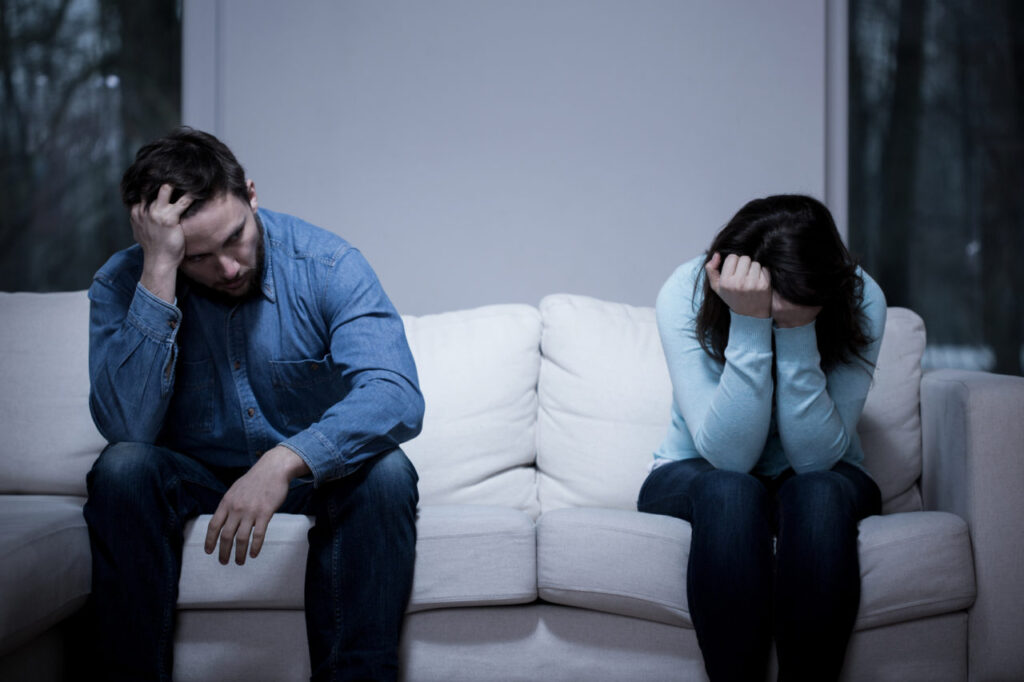How Depression affects your Relationship
When relationships are in trouble, depression may be to blame. Different studies and investigations have shown how closely depression is related to relationships in a cyclical fashion; for instance, depression affects the quality of your relationships, and the characteristics of your relationship can affect your level of depression.
Suffering from depression can cause you to pay less attention to your spouse or partner, be less engaged, be more short-tempered, or have trouble enjoying time together, all of which can cause your relationship to deteriorate.
On the other side, relationship troubles, such as increased conflict, lack of communication and understanding, withdrawal, and difficulty solving issues, can lead to depression.
Researchers and psychologists also point out the critical fact that building a strong, loving, and caring relationship can strengthen you and your spouse or partner against the devastating effects of depression.
Nevertheless, to know against what you are fighting, you must be able to identify when and how depression interferes. Unfortunately, the warning signs of depression in a relationship are not always obvious. So next is a checklist of what to look for:
SEX IN RELATION IS REDUCED OR NULL
A stunning number, seventy-five percent of individuals are depressed and report a lack of sexual desire. While it is normal to have an ebb and flow of sexual desire within a relationship and within an individual, a long-term lack of sexual connection in a relationship may suggest that depression is present.
Lack of sexual desire can manifest from a variety of depression-related causes: shame about sex, hidden resentment, feeling depleted, poor body image, taking medication, and performance anxiety, among others.
By addressing these issues, couples could use their sexual connection to rekindle their passion and strengthen their relationship.

FEELING HOPELESS ABOUT THE RELATIONSHIP
A feeling of despair is one of the central predictors of depression and suicidal thinking. However, feeling hopeless about the future with your spouse or partner does not necessarily mean you are doomed.
Instead, the cognitive distortion that often accompanies depression may manipulate your thoughts to believe that the future seems hopeless and that things will never get better. While everybody sometimes feels overwhelmed by the upcoming, this pervasive sense of hopelessness is a sign that depression is distorting your perception.
FEELING THE EMOTIONS AS THE ENEMY
Most people have difficulty dealing with negative emotions. But individuals who are depressed have particular issues in that department. They tend to feel overwhelmed by the intensity of their feelings and shut them down when strong emotions arise.
When depressed, you may react to strong emotions by becoming ruminant, repeatedly thinking about the same issues, denying, or ignoring those emotions, or becoming overly self-critical.
This kind of reaction means that in a relationship, when conflict arises, as it always does in a relationship, you are less prepared to deal with problems that provoke strong emotions. Instead, you may withdraw from your spouse or partner completely or push the conflict and explode.
Either way of handling or avoiding conflict is detrimental to your relationship. In addition, you have trouble empathizing with your spouse and therefore have less motivation to see things from your spouse’s perspective.

BEING TEMPTED TO TAKE ACTION
Men, in particular, who suffer from depression are more likely to express their depression outwardly.
For example, if you are a man suffering from depression, you are more likely to externalize your depression by drinking alcohol, having affairs, becoming aggressive, excluding loved ones, and retreating.
In addition, men have more somatic symptoms such as headaches, backaches, and low sex drive. Men also have more difficulty identifying their depression and are less likely to get help because they may not even recognize that their behaviors indicate underlying depression.
ANXIETY IS AFFECTING
Depression and anxiety are significantly comorbid, meaning that the two conditions are frequently seen together, often in the onset of mixed anxiety and depression.
Several problems come with combined anxiety and depression, which can also present a challenge to the relationship, such as trouble sleeping, difficulty concentrating, low energy, high irritability, worrying, expecting the worst, and constantly being on guard.
When you find the day-to-day relationship issues arising, you often perceive a severe threat to your relationship. It seems that the relationship is doomed to fail. This perceived threat can trigger increased anxiety and an unreasonable search for reassurance, putting your relationship under further distress.
This false alarm of threat to your relationship can be distressful for both of you and leave you with persistent feelings of incertitude.
With all of these challenges, it may seem like the odds are against a relationship involving depression. But many of these issues can be handled once you know about them and can implement effective coping strategies.
Only when individuals in a relationship hide and ignore their problems can irreparable damage occur.
